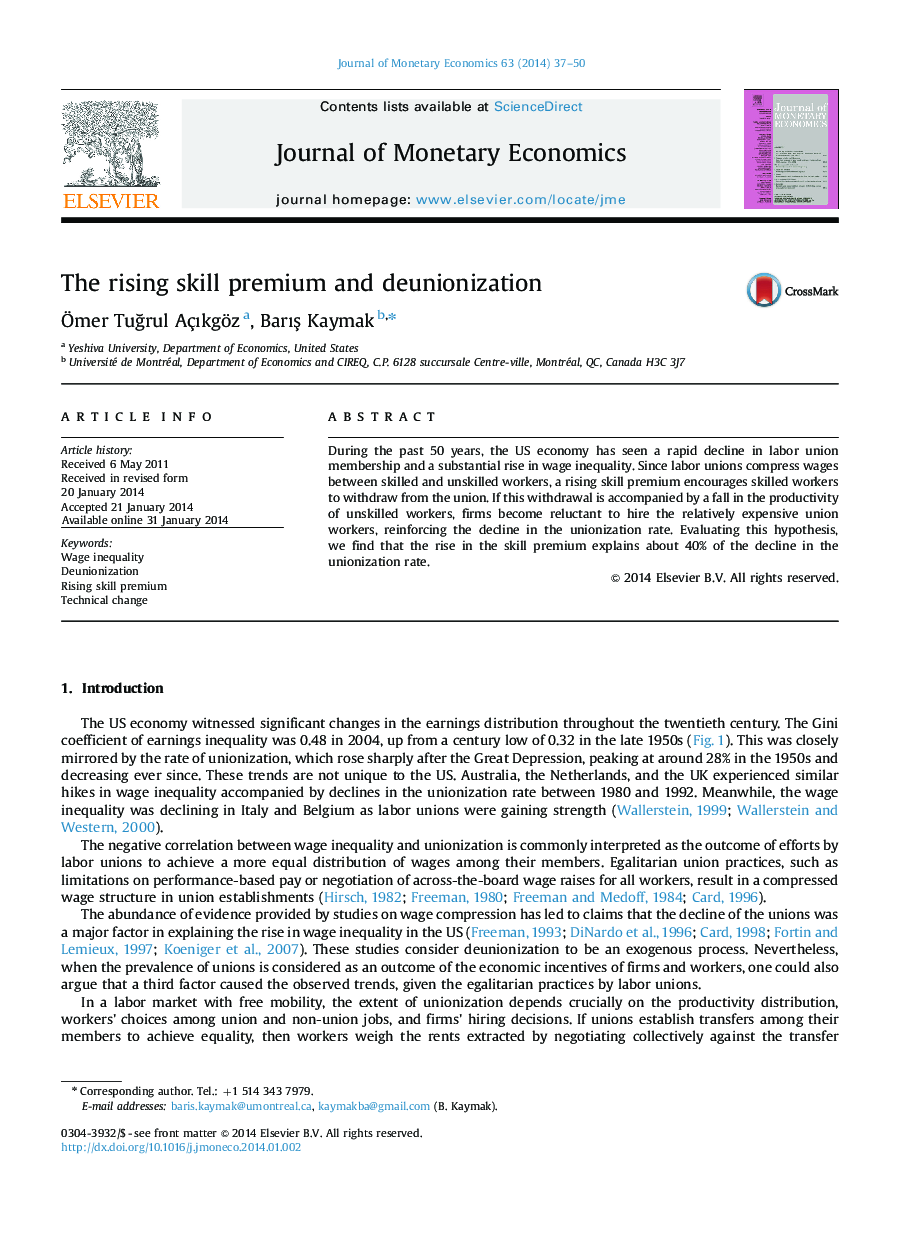| Article ID | Journal | Published Year | Pages | File Type |
|---|---|---|---|---|
| 967445 | Journal of Monetary Economics | 2014 | 14 Pages |
Abstract
During the past 50 years, the US economy has seen a rapid decline in labor union membership and a substantial rise in wage inequality. Since labor unions compress wages between skilled and unskilled workers, a rising skill premium encourages skilled workers to withdraw from the union. If this withdrawal is accompanied by a fall in the productivity of unskilled workers, firms become reluctant to hire the relatively expensive union workers, reinforcing the decline in the unionization rate. Evaluating this hypothesis, we find that the rise in the skill premium explains about 40% of the decline in the unionization rate.
Keywords
Related Topics
Social Sciences and Humanities
Economics, Econometrics and Finance
Economics and Econometrics
Authors
Ãmer TuÄrul Açıkgöz, BarıŠKaymak,
